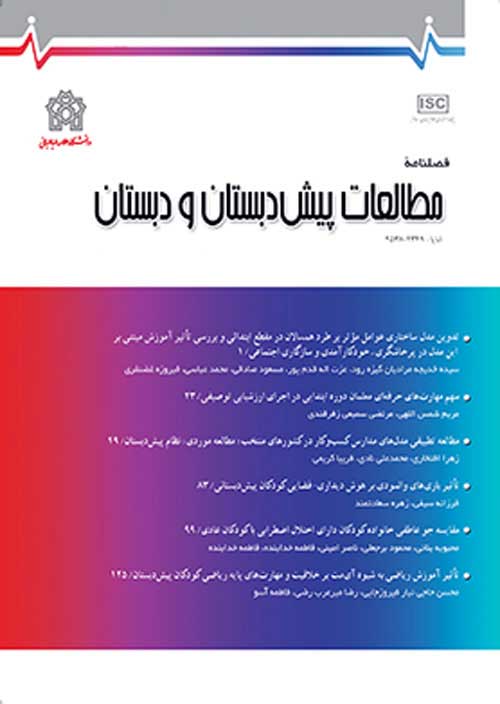The Effectiveness of Basic Math Training Program on Math Achievement of Children with Low Working Memory and Pre-Math Skills
Early pre-math skills in kindergarten have proven to affect mathematical achievement in school years, but there is limited research about the efficacy of pre-math training particularly for at-risk children for mathematical difficulties. The current study utilized an applied design with pre- and post-tests in the experimental and control groups. Therefore, the purpose of the present study was to investigate the effectiveness of basic math skills training on enhancing math achievement of preschool children with low working memory and pre-math skills. In a randomized cluster sampling method, data were collected for 57 preschool children with low working memory and pre-math skills who registered in the academic year 2015-16 in daycare and preschool centers in Tehran, Iran. The participants randomly were assigned into two groups. The experimental group participated in the pre-math training program in 24 sessions, 30 to 45 minutes each. Kohansedgh Basic Mathematical Skills for Children (1998) and Stanford-Binet Intelligence Test (2012) were used to evaluate mathematical skills and intelligence quotient. Independent t test was used to examine differences among demographic characteristics of the subjects in the both experimental and control groups. Also analysis of covariance was conducted to examine the effectiveness of the intervention. The findings revealed that pre-math skills training increased math achievement of preschool children at risk for mathematical difficulties. Therefore, it can be concluded that basic math training is an effective methods to prevent math problems or improve math achievement of children at risk for mathematical problems


